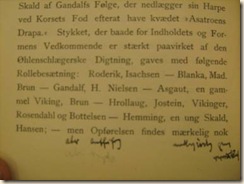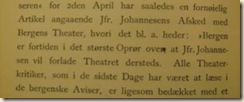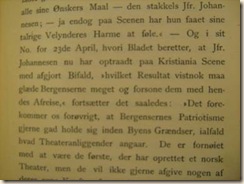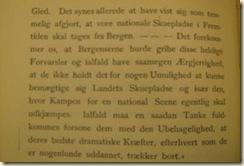Oluf Theodor Holch have lots of theater blood in his body. He had a mother; Amalie Juliane Holch, a father; Bernt Andreas Bottelsen, a grandfather Oluf Eliam Holch, a step mother and three aunts and his Uncle Arne Bottelsen.
Following are the theater biographies of his relatives that are mentioned in the Biografisk skuespillerleksikon by Liv Jenssen.
Amalie Juliane Holck,
(1837-?) Norwegian actress, born in Bergen 15th of March 1837, died apparently in the US, daughter of actor and hat maker apprentice Oluf Eliam Holch and midwife Torcheline (Terkeline) Wilhelmine Jørgensen. Married Jenssen (Johnsen?). Debuted at the Norwegian Theater in Bergen 11th of December 1853 as Lise in the Gossip Queen. She left the stage when she quit the Norwegian Theater. In 1876 she were living in USA, with husband and children.
Oluf Eliam Holck
(1813-65) norwegian actor (before and later: Hat Maker Apprentise) born in Bergen 22nd of September 1813, died 1st of November 1865, son of captain Jacob Andreas Holch (died 1846) and midwife Amalie Juliane Berniegroth (born about 1785, died 30th of November 1852). Married midwife Torcheline (Terkeline) Wilhelmine (Line, Lina) Jørgensen. Actor at the Norwegian Theater in Bergen one season, from the opening 2nd of January 1850.


























